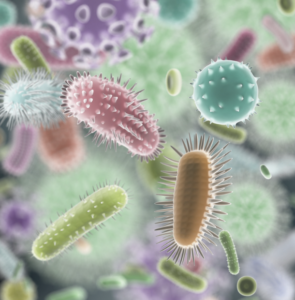We at ScreenMe know that vaginal health is key to overall health, and menopause can have a big impact on it. Therefore, this blog post navigates you through some of the changes your microbiome may experience when transitioning through menopause.
So, what happens?
As women enter menopause, they experience a decrease in oestrogen, which can lead to a variety of changes throughout their bodies, including the vagina. The vaginal walls become thinner and less elastic, leading to dryness, itching, and irritation. Additionally, the lack of elasticity can make the vagina more prone to tears, which can lead to infection. These hormonal changes also increase the pH of the vagina, making it less acidic.
These changes can cause pain during sex, dryness, and other issues that are not only uncomfortable, but put your vaginal health at risk.
What can be done?
*For ways to manage vaginal dryness (or atrophy) in particular, then head over to our dedicated blog post on such, here.
- HRT
- To address these issues, many women turn to hormone replacement therapy (HRT). HRT can help restore the elasticity of the vagina and can help keep the walls lubricated. However, HRT can have some side effects, and it is important to discuss the risks and benefits with a doctor before starting any form of hormone therapy.
2. Diet
- Staying hydrated and eating a healthy diet can help keep the walls of the vagina lubricated, reducing dryness and irritation. During your free consultation with our Menopause Packages, our experts guide you through easy foods and supplements you can incorporate into your diet to maximise your vaginal health.
3. Pelvic floor exercises
- Doing pelvic floor exercises for just a few minutes each day or every other day can really improve your vaginal and sexual health. Pelvic floor exercises, also known as Kegel exercises, involve contracting and releasing the muscles of the pelvic floor several times a day. These exercises can help improve the strength of the vaginal walls, which can reduce the risk of tears and discomfort during sex.
- This can prevent prolapse, help with incontinence, and make orgasms better! These exercises are really easy and can be done anywhere, so there really is no excuse to not give them a go!
4. Vaginal Microbiome
- Maintaining a healthy vaginal microbiome is key to good vaginal health. The vagina is home to a variety of bacteria and other microorganisms, known as the vaginal microbiome. This microbiome works to keep the vagina healthy and balanced, protecting it from infection.
- At menopause, the balance of the vaginal microbiome can be thrown off, leading to a decrease in the number of beneficial bacteria, leaving space for harmful bacteria and pathogens. This reduces vaginal health, making it more likely to catch infection, or have other uncomfortable symptoms including dryness, pain during sex, itching, and more.
- Therefore, it is important to take care of your vaginal microbiome. We recommend one of our Vaginal & Sexual Health Packages, which screen 100% of your vaginal microbiome using gold-standard next-generation sequencing technology. In your following free consultation, one of our experts will create a bespoke plan for you to improve your vaginal health and wellbeing.
5. Lifestyle
- Small changes including not wearing tight clothing for long periods of time (such as gym leggings), can actually have a huge impact on your vaginal health and wellbeing!
- Other changes include being mindful with how you wash your genital area, as well as what products you use. For example, douching is a big no go and products used around the vagina should be paraben and fragrance free!
6. Lube
- Using lubricants during sex is a brilliant way to reduce friction and combat vaginal dryness; making sex less painful as well as more enjoyable. However, be careful with your choice of lubricant – head over to our Health Shop to see some of the lubricants that our experts recommend.
Vaginal health is a really important part of overall health, and menopause can have a big impact on it. But by employing some easy changes, you can take steps to protect your vaginal health during menopause, reducing discomfort and improving your overall quality of life! We at ScreenMe are here to support you through all of your changes throughout your life, optimising your health, happiness and much more!
Jessica Hobbis







